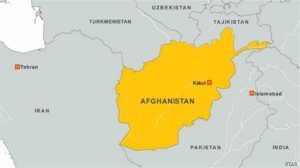
Staff Writer
The Taliban’s month-long stay at the helm of governance in Afghanistan has been largely miss reported and misrepresented in light of existing biases and long-held conceptions. Their largely well-intentioned cooperation with the international community in relation to the fight against militancy and the historic evacuation operation was questioned, with no real evidence. Further, their relative popularity has been continuously questioned, and focus has largely been placed on their positions in regards to women’s rights and ethnic representation. The BBC for example in one instance questioned the belligerency of a Panjshir Valley combatant, despite the fact that he at the time had been clad in military apparel, with the outlet claiming that this is common in the valley and accusing the Taliban of committing crimes against civilians. Further, little has been reported on the US occupation and invasion, with emphasis being fixed on militancy and women’s rights.
Speaking to Radio Islam International, Dr Azzam Tamimi pointed this out, even amongst journalists previously espousing a favourable view on Human rights and imperialism. “Well, that’s very clear. That’s what we see, unfortunately, and even broadcasters and journalists who are usually known to side with human rights and by people’s right to be liberated from occupation have seemed not to sympathize at all with the Taliban.”
Dr Tamimi argued that this can possibly be attributed to the Taliban’s religious leanings, “And the only reason for this is because everything about them looks Islamic, And I think this is the problem that we have. Anything that is to do with Islam seems to provoke this hatred.”
He also noted that the Taliban’s establishment of control over Afghanistan and the group’s successes in forcing out international troops from the country does confer it some sort of legitimacy, especially in a context wherein there was no election. He did note that this should be later judged by a vote.
Since the US’s retreat from Afghanistan in August, the country’s economy has stalled as a result of infighting and more significantly the halt of donor funds, which are responsible for between 40 and 60 percent of the government’s budget. Safety in the country has increased, and following the capture of Panjshir, the Taliban is in full territorial control of the country. The group’s interim government does however have no women present and is substantively comprised of Pashtuns. Infighting between its political and military wings has occurred, with the military wing currently seeming to be in the ascendency. Qatar, Turkey and to an extent Pakistan hare assisting the new government, however the double standards in international recognition, especially when compared to other governments in China and even the gulf are likely to further empower the military wing and also worsen the lives of Afghans, who for the past 40 years have been fighting foreign occupations.







0 Comments